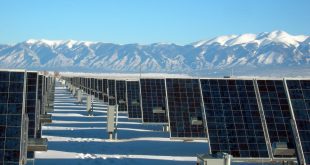The truth is definitely becoming clearer. Thanks to widespread news coverage and Al Gore’s book and documentary, people are becoming more and more aware that energy needs to be conserved, even if it means inconvenience. Recycling isn’t something only “tree-huggers” do anymore. Even big companies are getting into the habit of recycling and reusing their waste products. My local Wal-mart has barrels set up to collect used plastic bags and one of the local grocery stores uses their cardboard boxes instead of bags for their customers to carry their purchases home.
With all the basics covered; changing light bulbs, recycling your paper, plastic and metal goods, and turning off the faucets when brushing your teeth, you are doing a great job of conserving the Earth’s natural resources. But there is more that you could be doing. Follows is a list of lesser-known ways to conserve energy in the comfort of your own home.
1. Replace the filters on your air conditioner every month that you are using it. By running the machine with a clean filter, it doesn’t have to work as hard and doesn’t need to use more energy to achieve the keep the rooms cool.
2. Turn down the water temperature on your water heater. By lower the temperature of the water to 120 degrees, the heater won’t have to use as much energy to heat up the water to a warmer temperature. It’s also safer to have the water heater lower if you have young children in the house, as the hot water won’t scald them if the heater is turned to 120 degrees or cooler.
3. Avoid over checking your food while it is cooking in the oven. Every time you open the oven door while it is on, the temperature inside the oven drops as much as 30 degrees. The oven then has to expend energy to bring the temperature back up. By reducing the number of times you open the door to check on your meal, you can save energy.
4. Avoid washing your clothes in hot water. Most clothes that are not stained can be cleaned in cold water (it’s also better for the dyes and less harsh on the fabric). Clothes that are dirty but not overly stained can be pretreated and washed in warm water. Hot water is really only necessary for heavily stained clothes or if you are trying to eliminate pests such as lice. Many detergent companies are formulating their products to work as well in cold water as in warm and hot in order to help consumers conserve energy.
5. Adjust the blades on ceiling fans for seasonal changes. The fan company (and occasionally the blades themselves) will inform you of the optimal position for your fan blade to keep the air circulating during the summer and winter months.
More: continued here
 Alternative Energy HQ solar power for homes, wind energy, and bio fuel issues
Alternative Energy HQ solar power for homes, wind energy, and bio fuel issues







